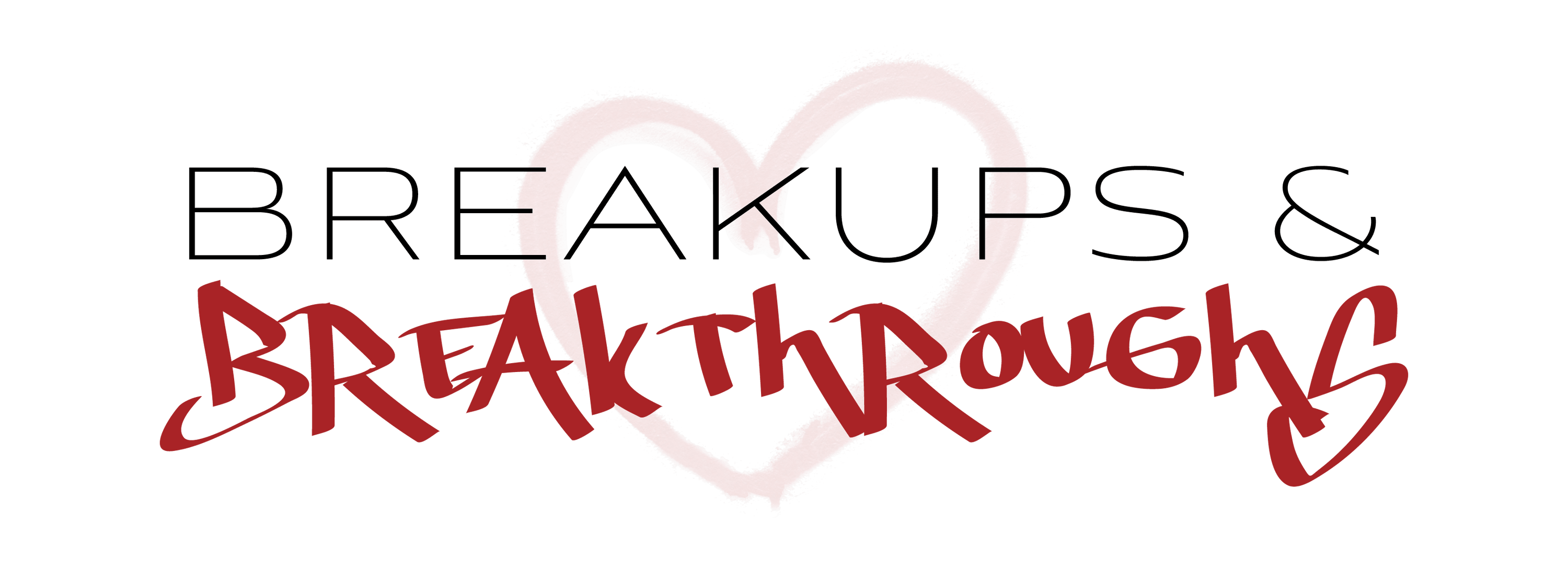So, here we are. Talking about something that hits close to home for so many of us. Breakups—man, they’re like that unexpected rainstorm on a sunny day. You know it’s coming, but when it hits, it feels like the world’s falling apart. Whether it’s your first time navigating this emotional rollercoaster or you’ve been through it a few times, the pain never really gets old. But guess what? You’re not alone. Millions of people have walked this path, and they’ve come out stronger on the other side.
Think of breakups as life’s way of saying, "Hey, it’s time to grow." Sure, it sucks in the moment, but trust me, there’s a lesson in every heartbreak. In this article, we’re diving deep into the world of breakups—why they happen, how to survive them, and most importantly, how to turn the pain into something positive. This isn’t just another breakup guide; it’s your roadmap to healing and rediscovering yourself.
So grab a cup of coffee, sit back, and let’s unravel the mysteries of breakups together. Whether you’re looking for answers or just need someone to tell you it’s okay to feel the way you do, you’re in the right place. Let’s get started, shall we?
Understanding the Breakup Phenomenon
First things first, let’s talk about the elephant in the room. Breakups aren’t just a modern phenomenon; they’ve been around since the dawn of relationships. Back in the day, our ancestors probably sat around campfires, sharing stories of lost loves and heartbreaks. But what makes breakups so universal? Why do we all experience them at some point in our lives?
According to a study by the University of Michigan, around 45% of adults in the U.S. have gone through a breakup in the past year alone. That’s a staggering number, right? But here’s the thing: breakups aren’t just about failed relationships. They’re about growth, change, and sometimes, even destiny. Every breakup teaches us something about ourselves and the people we choose to let into our lives.
Now, let’s break it down. Why do breakups happen? Well, there’s no one-size-fits-all answer to that question. Relationships are complex, and so are the reasons behind their endings. Whether it’s communication issues, growing apart, or irreconcilable differences, every breakup has its own story. But one thing’s for sure: they’re not the end of the world.
Common Reasons Behind Breakups
Alright, let’s get real for a moment. Breakups don’t just happen out of the blue. There’s usually a buildup of issues that eventually lead to the final straw. Here are some of the most common reasons why relationships fall apart:
- Communication Breakdown: This is a biggie. When couples stop talking or miscommunicate, it’s like building a house on shaky ground. It’s bound to crumble.
- Trust Issues: Trust is the foundation of any relationship. Once it’s broken, it’s incredibly hard to rebuild.
- Growing Apart: Sometimes, people just grow in different directions. And that’s okay. Not every relationship is meant to last forever.
- External Pressures: Family, friends, work, or even distance can put a strain on relationships. When the pressure becomes too much, breakups can happen.
Now, let’s not forget the elephant in the room: infidelity. Cheating is a major reason behind many breakups. But here’s the thing: it’s not always black and white. Sometimes, it’s a symptom of deeper issues within the relationship. Understanding why it happened is key to moving forward.
Emotional Impact of Breakups
When a breakup hits, it’s like a tidal wave of emotions. One minute you’re fine, and the next, you’re drowning in sadness, anger, or even relief. According to a study published in the Journal of Social and Personal Relationships, the emotional impact of breakups can last for months, sometimes even years.
Here’s the kicker: everyone processes breakups differently. Some people cry for days, while others dive into work or hobbies to distract themselves. There’s no right or wrong way to feel after a breakup. What matters is how you choose to handle those emotions.
Surviving the Aftermath: Coping with Breakups
Now that we’ve talked about why breakups happen, let’s shift gears and focus on how to survive them. Coping with a breakup isn’t easy, but it’s doable. Here are some strategies that might help:
Lean on Your Support System
Your friends and family are your biggest allies during tough times. Don’t be afraid to reach out to them when you need someone to talk to. Sometimes, just having someone listen can make a world of difference.
Take Time for Yourself
Self-care isn’t just a buzzword; it’s a necessity. Whether it’s taking a long bath, going for a run, or indulging in your favorite food, taking care of yourself is crucial during the healing process.
Express Your Feelings
Writing in a journal, creating art, or even venting to a trusted friend can help you process your emotions. Bottling them up won’t do you any favors in the long run.
Rebuilding After Breakups
So, you’ve survived the initial shock of the breakup. Now what? Rebuilding your life after a breakup is about rediscovering who you are outside of the relationship. Here’s how you can start:
Reflect on the Relationship
Taking time to reflect on what went wrong can help you grow as a person. Ask yourself: What did I learn from this relationship? How can I apply those lessons to future relationships?
Set New Goals
Now’s the perfect time to set new goals for yourself. Whether it’s personal, professional, or even fitness-related, having something to focus on can help distract you from the pain.
Embrace New Experiences
Try something new—travel, take up a new hobby, or even volunteer. Experiencing new things can help you see the world in a different light and remind you of all the good things life has to offer.
The Science Behind Breakups
Did you know that breakups can actually affect your brain? Studies have shown that the pain of a breakup is similar to the pain of physical injury. Your brain releases stress hormones like cortisol, which can make you feel anxious and overwhelmed.
But here’s the good news: your brain is also capable of healing. Over time, the pain subsides, and you start to feel like yourself again. It’s all about giving yourself time and space to heal.
Breaking the Cycle: Learning from Past Breakups
Every breakup is an opportunity to learn. By reflecting on past relationships, you can identify patterns and behaviors that might have contributed to their endings. This self-awareness can help you avoid making the same mistakes in the future.
When to Seek Professional Help
Sometimes, breakups can feel overwhelming, and that’s okay. If you’re struggling to cope, don’t hesitate to seek professional help. Therapists and counselors can provide you with tools and strategies to help you navigate the healing process.
Therapy Options for Healing
There are various types of therapy that can help you heal from a breakup, including cognitive-behavioral therapy (CBT), mindfulness-based therapy, and even art therapy. Finding the right approach for you is key to making progress.
Building Resilience After Breakups
Resilience is your ability to bounce back from adversity, and breakups are no exception. Building resilience takes time, but it’s worth it. Here are some ways to cultivate resilience after a breakup:
- Practice Gratitude: Focusing on the positive aspects of your life can help shift your mindset from one of loss to one of abundance.
- Stay Active: Exercise releases endorphins, which can help improve your mood and reduce stress.
- Connect with Others: Building and maintaining strong social connections can help you feel supported and less isolated.
Rediscovering Yourself
Breakups can be a catalyst for self-discovery. Use this time to explore your interests, passions, and values. You might be surprised at what you find out about yourself.
Conclusion: Moving Forward After Breakups
So, there you have it—a comprehensive guide to breakups. Remember, breakups are tough, but they’re not the end of the world. They’re opportunities for growth, learning, and rediscovery. By understanding why breakups happen, coping with the aftermath, and rebuilding your life, you can emerge stronger and more resilient.
And here’s the most important part: don’t be too hard on yourself. Healing takes time, and that’s okay. Be patient, be kind, and trust the process. If you’re feeling overwhelmed, don’t hesitate to reach out for help. Whether it’s a friend, family member, or professional, there’s always someone who cares about you and wants to see you succeed.
So, take a deep breath, put one foot in front of the other, and keep moving forward. You’ve got this. 💪
Table of Contents
- Understanding the Breakup Phenomenon
- Common Reasons Behind Breakups
- Emotional Impact of Breakups
- Surviving the Aftermath: Coping with Breakups
- Rebuilding After Breakups
- The Science Behind Breakups
- Breaking the Cycle: Learning from Past Breakups
- When to Seek Professional Help
- Building Resilience After Breakups
- Conclusion: Moving Forward After Breakups


